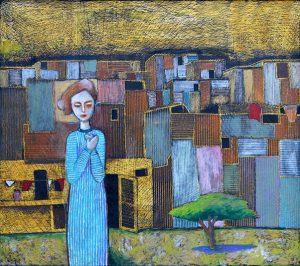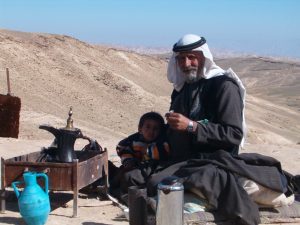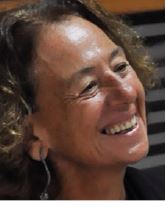Palestine and Italy have a lot in common. They share many features, from the sunny climate and the long and rich history to the love of social life and interaction. Indeed, both societies are based on the fundamental concept of family, a pillar around which the two cultures steadily revolve. Families under the Mediterranean sun are synonyms for love, safety, shelter, food, home, and the physical and metaphorical place where children and elderly people are taken care of, where everyone has a place and a defined role to play. But humans are not linear beings and often, unfortunately, love is transformed into possessiveness, security into oppression, shelters into cages, food into dependency, and homes into prisons, where the most vulnerable are the ones who suffer and are subject to physical, psychological, and economic violence, where roles become stereotypes that limit individual choices and personal development.

Photo courtesy of Zawyeh Gallery, Ramallah.
To truly help and support a society to progress towards a more equitable future for everyone, understanding its complexities is paramount. The basis for such accurate assessment of societal trends remains in the hands of statistical institutes that provide comprehensive information, on a wide territorial basis, and accurate analysis of large-scale data collection. Therefore, the Italian Agency for Development Cooperation (AICS), as EU lead donor in gender programming in Palestine, believes in the concrete and sustained support of the Palestinian Central Bureau of Statistics when it comes to gender-sensitive data.
Through the support of the upcoming Violence Survey, in partnership with other donors and UN agencies, and through the establishment of the National Observatory on Gender-Based Violence, together with key Palestinian institutions and the civil society, we look forward to gathering accurate and updated information on the incidence of domestic violence currently experienced in Palestinian families throughout the West Bank, Gaza, and East Jerusalem.
Gathering comprehensive information on domestic violence is the first step in working towards solutions.
Violence that originates within the family undermines the foundation of societies that are based on the very concept of family. The threat that domestic violence poses to a person’s physical and psychological integrity affects everyone around the victim, bringing long-lasting damage. According to 2011 data, a staggering 37 percent of Palestinian women who have ever been married were exposed to at least one form of violence by their husbands. In response, Italy’s commitment to combat gender-based violence in Palestine dates back more than a decade.
In partnership with local institutions, such as the Ministry of Social Development and the Ministry of Women’s Affairs, and in line with the current gender-mainstreaming strategies of the Palestinian National Policy Agenda, Italy’s investments in gender programs in Palestine have ranged from improving quality and access to integrated anti-violence sheltering services, first and foremost with the establishment of the Mehwar Center in Bethlehem in 2007 and its ongoing support, to enhancing access to justice, promoting economic and social empowerment of women, and fostering a culture based on the respect of human rights.

Future funding is also constantly being pursued through both bilateral and multilateral programs. While continuing to support services and institutions, AICS opens the door to programs that can bring about the much-needed social behavioral change, which can aid in redefining the role of men, women, boys, and girls within the family in their most positive light; where the concept of family can generate societal support and contribute to the development of individuals and the whole community as a well-functioning organ. Surely no one has the right to pry into the private lives of individuals. Nevertheless, in the face of suffering, the state, hand in hand with the society, has the duty to safeguard the well-being of each and every one of its members.
At the same time, when women are allowed to lead full and productive lives, men, children, and families also prosper. The society benefits from their contribution in the public sphere. Thus, women’s economic empowerment programs are and will remain at the heart of our support, improving access to decent work opportunities, providing business training and coaching, and supporting the development of gender-sensitive polices.
We strongly believe that the empowerment of women and the protection of women’s rights will ensure a dignified role for everyone in the family and in society. This is key to the well-being of our countries and their future generations.


